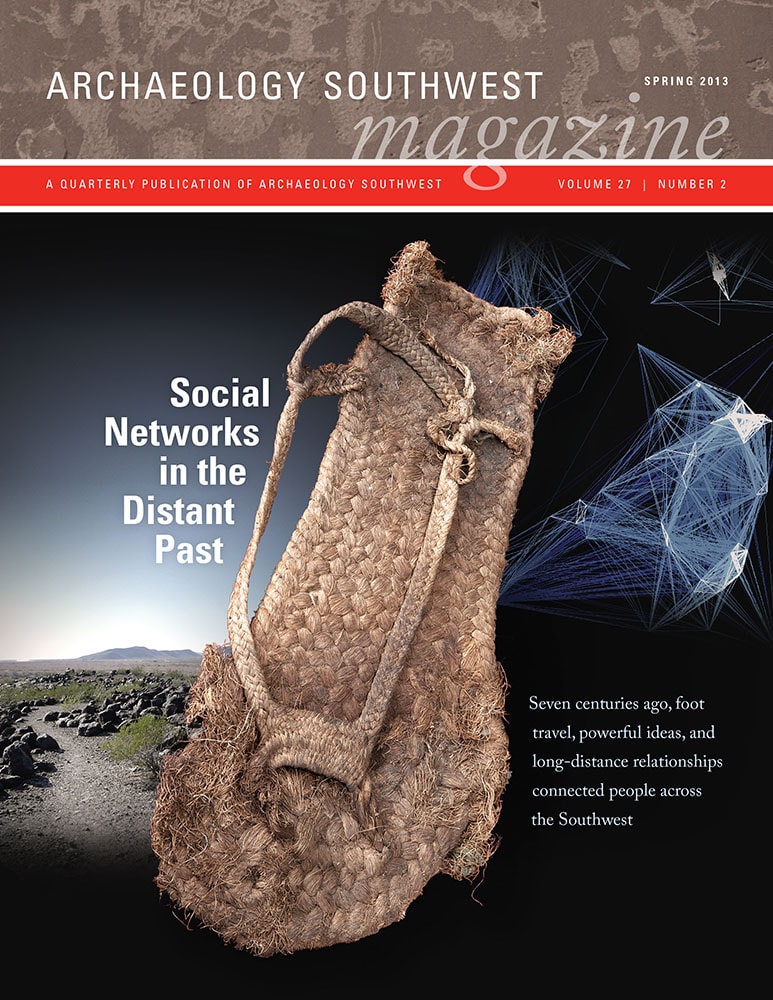Description
In this issue
Social Networks in the Distant Past: The Late Precontact Southwest — Barbara J. Mills, Jeffery J. Clark, Matthew A. Peeples, W. R. Haas, Jr., John M. Roberts, Jr., J. Brett Hill, Deborah L. Huntley, Lewis Borck, Ronald L. Breiger, Aaron Clauset, and M. Steven Shackley
Proximity: What role did nearness play in creating social networks?
Pottery: How do decorated ceramics enable us to reconstruct social networks?
Obsidian: What does a sudden expansion in its exchange imply?
Brokers: Where were the middlemen? What was their role?
Internal and External Relations: Why were some groups less vulnerable to crises?
Interactions in Turbulent Times: Insights Revealed by Social Network Analyses
Collaborations: More Than the Sum of Their Parts
Back Sight — William H. Doelle, Archaeology Southwest
